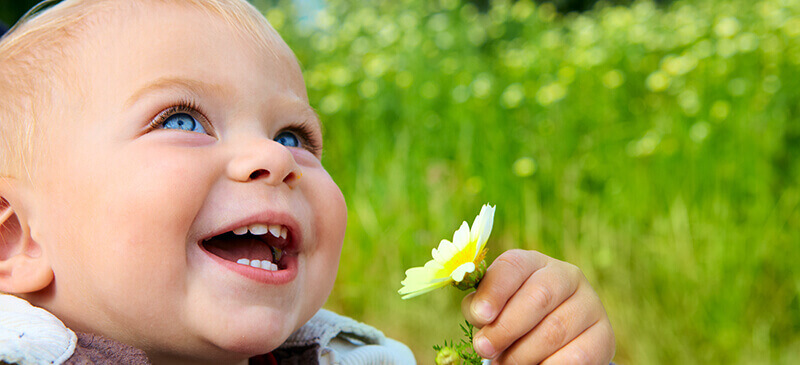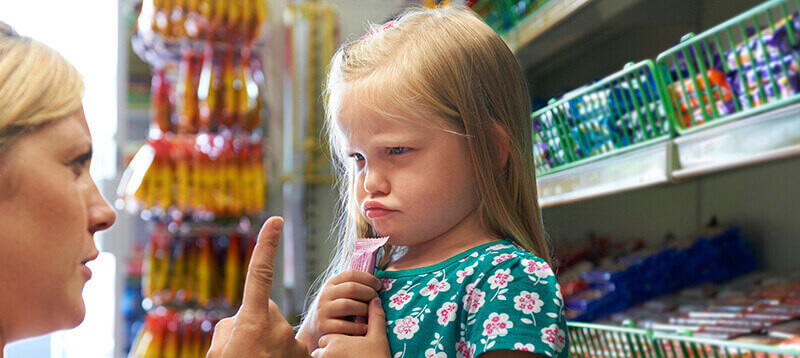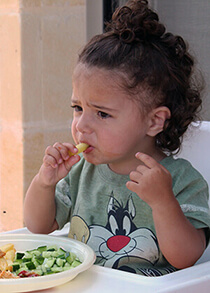Toddlers and Young Children
From our: Parenting Skills library.After babyhood, the next stage of development is known as the ‘toddler years’. Generally speaking this period tends to start anytime from about 12 to 18 months of age, and will usually continue for a couple of years.
It is a period of development characterised by the emergence of independence of both personality and movement.
Your baby, who in the early days had no idea that you were a separate person, will now be keen to assert their independence in every way.
And of course, as the name ‘toddler’ implies, they are now moving about freely, crawling, and then starting to walk, which gives them extra freedom to make independent decisions about what they do, and where they go.
During the toddler years children start to develop language, and it begins to be possible to have a conversation with them.
It is fair to say that the toddler years are a delightful, if not challenging, developmental stage.

The toddler years are full of laughter, both at and with your child, and many happy times.
But they are also enormously challenging in many ways.
The assertion of independence, and the frustrations of not being able to achieve as much as they wanted, often lead toddlers to challenging behaviour, including Tantrums.
The toddler years are not called the ‘Terrible Twos’ for nothing, and almost every child will throw at least one tantrum over the period.
Understanding Toddlers and Their Behaviour
The crucial issue in managing behavioural issues is to develop an understanding of your child, and the reasons for their behaviour.
As a general rule, children want parental attention and will do whatever is necessary to get it, including throwing tantrums. It is important to understand this and to avoid doing anything that may reinforce the unwanted behaviour in your child.
In other words:
- If you react to tantrums with full-on, 100% attention, the tantrums will continue.
- If, on the other hand, you ignore them completely, and carry on doing something else, then it is always possible that your child may decide that it is not worth throwing tantrums anymore.
This is why you may sometimes see brave parents sitting calmly down on the pavement or in the park, while their child throws a tantrum on the floor next to them. They are simply waiting for the storm to pass.

Our page on Understanding Your Young Child or Toddler will help here.
For more about strategies for coping with difficult toddler behaviour, and particularly tantrums, you may want to read our pages on Managing Toddler Behaviour and Dealing with Tantrums.

Feeding Toddlers
Apart from toddler behaviour, the other issue that seems to be a perennial issue for parents of toddlers is feeding.
Apparently asserting independence means declaring a dislike for a wide range of previously-acceptable foods and/or an ability to eat only pink/orange/white/some other type of foods.
As parents despairingly ask themselves questions like ‘Will my child always be a fussy eater?’ (no) and ‘Is this really a phase and, if so, will it ever pass?’ (yes), our page on Feeding Toddlers may be helpful in reassuring them that, yes, their child is normal. It also provides some strategies for managing food problems and staying sane.
The only piece of advice you really need to survive the toddler years…
…is that this, too, is a phase. It will eventually pass, and you will face new problems and challenges. That’s parenting.
